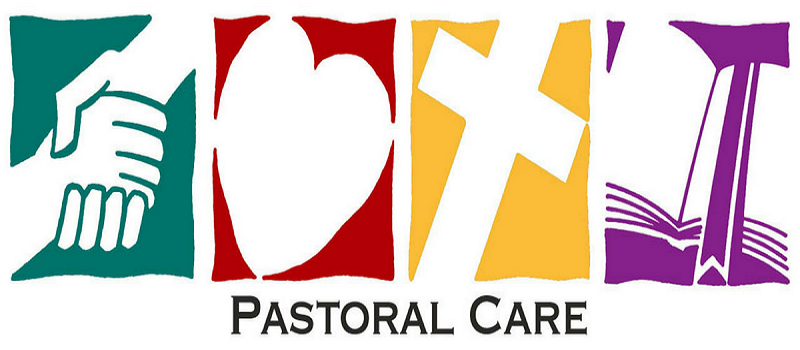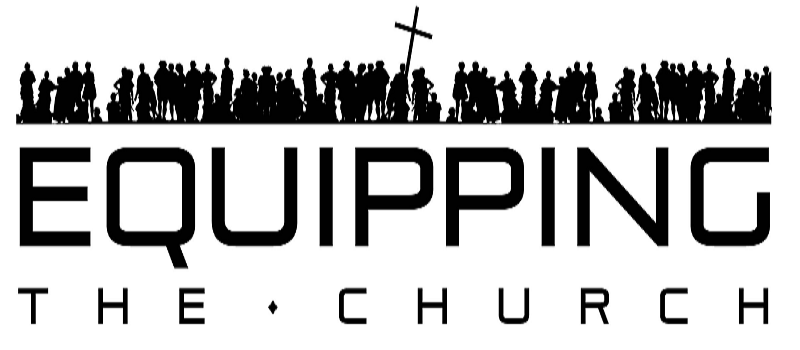Archive of posts filed under the general discussions category.
Leadership in the early church (6)
![]()

ARTICLES IN THIS SERIES
1) The early church worked out their leadership based on the mission and method of Jesus.
2) The elders were the pastors in the early church.
3) The elders managed the tasks they were responsible for through delegation.
4) The elders delegated ministry to all disciples, also known as servants (diakonos, deacons).
5) The elders both provided and delegated the task of pastoral care.
6) All of the elders (leaders) and deacons (workers) were ordained (commissioned) with prayer and the laying on of hands.
6) All of the elders (leaders) and deacons (workers) were ordained (commissioned) with prayer and the laying on of hands.
The word ‘ordination’ is a big word for many churches. It carries a sense of ‘something special’ or ‘something other’ for the person that is ordained. Although my tradition does not see ordination as a sacrament, it sometimes feels like some people do see it as special power conferred only to a select group of special people in the church.
In the OT prophets (1 Kings 19:16), priests (Exodus 40:15) and kings (1 Kings 1:34) were anointed, sometimes with consecrated oil (Exodus 30:22-33). This would have been their ‘ordination’, ‘official appointment’ or ‘commissioning’. They were marked as ‘the Lord’s anointed’, the ones chosen by God to serve His purpose in their assigned task. The messiah (anointed in Hebrew = mashiach, in Greek = christos) was the Lord’s anointed, chosen to fulfill His ultimate redemption purpose. Continue reading ‘Leadership in the early church (6)’ »
Leadership in the early church (5)
![]()

ARTICLES IN THIS SERIES
1) The early church worked out their leadership based on the mission and method of Jesus.
2) The elders were the pastors in the early church.
3) The elders managed the tasks they were responsible for through delegation.
4) The elders delegated ministry to all disciples, also known as servants (diakonos, deacons).
5) The elders both provided and delegated the task of pastoral care.
6) All of the elders (leaders) and deacons (workers) were ordained (commissioned) with prayer and the laying on of hands.
5) The elders both provided and delegated the task of pastoral care.
The task of pastoral care is best understood in light of the meaning of ‘pastor’, which is ‘shepherd’. As we have seen the elders were the appointed shepherds in the church. In this sense, each elder was to be called ‘Pastor’, not just one of them. As shepherds, they were responsible for the sheep, and for everything relating to the sheep. This involved both exercising ‘shepherding care’ and delegating it. In the book of Acts, we see the Apostles/Elders visiting new believers as well as counseling, comforting, disciplining, healing and teaching existing believers. But we also see them delegating care to ‘servants’ in the church (Acts 6:1-7). There was no sharp separation between spiritual care and practical care; both were an important part of general pastoral care.
If we look at relevant passages that speak to the task of leaders as shepherds, we see their work includes: Continue reading ‘Leadership in the early church (5)’ »
Leadership in the early church (4)
![]()

ARTICLES IN THIS SERIES
1) The early church worked out their leadership based on the mission and method of Jesus.
2) The elders were the pastors in the early church.
3) The elders managed the tasks they were responsible for through delegation.
4) The elders delegated ministry to all disciples, also known as servants (diakonos, deacons).
5) The elders both provided and delegated the task of pastoral care.
6) All of the elders (leaders) and deacons (workers) were ordained (commissioned) with prayer and the laying on of hands.
4)The elders delegated ministry to all disciples, also known as servants (diakonos, deacons).
According to Ephesians 4:11-13, the task of the church leaders/elders (apostles, prophets, evangelists, pastors, teachers) was to equip the Lord’s people for works of service. The word for ‘service’ here is ‘diakonias’, from which we get ‘deacon’. One of the Latin words for serving is ‘ministro’, from which we get the word ‘minister’. Originally all members were called to be ministers and deacons (servants), training as disciples to serve in the mission of the church. There were specific assignments to which disciples were commissioned. Continue reading ‘Leadership in the early church (4)’ »
Leadership in the early church (3)
![]()

ARTICLES IN THIS SERIES
1) The early church worked out their leadership based on the mission and method of Jesus.
2) The elders were the pastors in the early church.
3) The elders managed the tasks they were responsible for through delegation.
4) The elders delegated ministry to all disciples, also known as servants (diakonos, deacons).
5) The elders both provided and delegated the task of pastoral care.
6) All of the elders (leaders) and deacons (workers) were ordained (commissioned) with prayer and the laying on of hands.
3) The elders managed the tasks they were responsible for through delegation.
So far we have seen that Jesus trained His disciples to lead the mission of His church. He sent them (apostolos) to multiply disciples, who in turn would raise up other disciples (2 Timothy 2:2). In each church more mature disciples (the elders, presbyteros) were appointed to oversee (episkopos, watch over) the people of God as pastors (poimenos, shepherds). These different titles all refer to the same leaders (elder, overseer, pastor).
The elders were authorized to direct the affairs of the church (1 Timothy 5:17). In other words, there was one elder leadership team responsible for every aspect of church life and ministry. These affairs would include for example: worship, prayer, discipleship (preaching/teaching, discipline), fellowship, evangelism, stewardship, pastoral care, benevolence, administration, ministry and asset management, etc. They were responsible for everything. Continue reading ‘Leadership in the early church (3)’ »
Leadership in the early church (2)
![]()

ARTICLES IN THIS SERIES
1) The early church worked out their leadership based on the mission and method of Jesus.
2) The elders were the pastors in the early church.
3) The elders managed the tasks they were responsible for through delegation.
4) The elders delegated ministry to all disciples, also known as servants (diakonos, deacons).
5) The elders both provided and delegated the task of pastoral care.
6) All of the elders (leaders) and deacons (workers) were ordained (commissioned) with prayer and the laying on of hands.
2) The elders were the pastors in the early church.
The word ‘pastor’ comes from the Latin for shepherd (poimen in Greek). As we will see, this title was never applied to an individual in the church, but to the elders altogether.
Jesus is the Chief Shepherd (John 10:11,14, Hebrews 13:20, 1 Peter 2:25, 1 Peter 5:4). He is the Good Shepherd, in contrast to the bad shepherds described in Ezekiel 34. All of the qualities seen in Psalm 23 perfectly describe Jesus. This is how He related to people, as sheep for whom He was willing to die to protect.
Jesus assigned the task of caring for His sheep to the apostles. In John 21:15-17, Peter is being restored as a disciple after denying Jesus three times. In the threefold commands to ‘feed my lambs’, ‘take care of my lambs’ and ‘feed my sheep’, Jesus is calling Peter back to his task as a disciple/apostle. As we see below, the first disciples/apostles understood their task as caring for the Lord’s sheep. Continue reading ‘Leadership in the early church (2)’ »
Leadership in the early church (1)
![]()

ARTICLES IN THIS SERIES
1) The early church worked out their leadership based on the mission and method of Jesus.
2) The elders were the pastors in the early church.
3) The elders managed the tasks they were responsible for through delegation.
4) The elders delegated ministry to all disciples, also known as servants (diakonos, deacons).
5) The elders both provided and delegated the task of pastoral care.
6) All of the elders (leaders) and deacons (workers) were ordained (commissioned) with prayer and the laying on of hands.
Recently I have been part of discussions in our church about leadership structures. In one conversation we were talking about the early church model of leadership, and someone asked how the early church structured their leadership.
I want to spend some time in a number of posts outlining my thoughts on this topic, based on my reading of the New Testament.
1) The early church worked out their leadership based on the mission and method of Jesus.
Jesus’ mission was to rescue God’s creation family and to restore God’s creation kingdom. Through His life, death, resurrection and ascension He re-establishes both God’s creation kingdom and creation family. As followers of Jesus, we are restored as God’s children (identity), renewed in the goodness of God (character) and recommissioned in the service of God (purpose). As disciples, we are being trained to live WITH God as His children, LIKE God in His character, and FOR God’s purpose in the world. Continue reading ‘Leadership in the early church (1)’ »
Trying to find a church on vacation
How to be a friendly church?
![]()

I’ve been thinking about whether guests would consider our church a friendly church. Often times members are quick to say that their church is friendly, but would visitors feel the same way? A friendly greeter at the door may or may not help (Walmart has these too). A time of mutual greeting may or may not help too (does it every move beyond a hollow greeting and handshake)? Are the people friendly-natured? Is there a friendly atmosphere or energy in the church? Do people look you in the eye as a visitor and engage you in a conversation? Do they actually seem to be interested, or are they just performing their part? Do people seem genuinely glad to be there, and glad that you are there too?
I found an article online by S. Joseph Kidder that raised some thoughts about being a friendly church. Some of them are printed below.
How about you, what makes a friendly church to you? (share your comments)
Do you contribute to the friendliness factor in your church?
1. Give guests the best attitude.
Visitors to your church need to notice a prevailing friendly attitude. Most will make up their minds about your church within 30 seconds of entering the front door. Continue reading ‘How to be a friendly church?’ »
Attending church less often!?
![]()

I recently read a post by Carey Nieuwhof on declining church attendance: 10 Reasons Even Committed Church Attenders Are Attending Church Less Often. Although attendance is not the goal or mission of our church, it is an important part of who we are and what we do as a church.
The reasons he suggests below are facts, whether we like or agree with them or not. The reasons suggested are his, the comments that follow are my summary.
1. Greater affluence
More people have more disposable money, and more options. Travel options, technology options, options for their kids.
2. Higher focus on kids’ activities
A growing number of kids are playing sports. And a growing number of kids are playing on teams that require travel. Many of those sports happen on weekends. Continue reading ‘Attending church less often!?’ »
